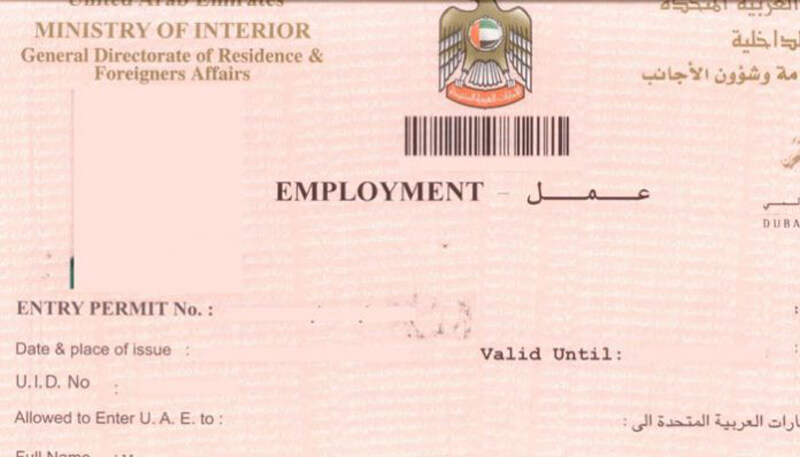Employers must apply for the standard work visa according to the UAE Labour Law. If you’re considering relocating to the UAE to work as a skilled professional, you have two visa options to choose from for living in the country. Familiarizing yourself with the application process and requirements is crucial for a seamless transition into your new job and residence.
Types of Work Visas
Standard Work Visa: This is the most prevalent type of work visa granted to individuals employed by mainland or free zone companies. The standard work visa usually lasts for two or three years and is linked to your job. It permits full residency in the UAE and allows you to sponsor family members.
Green Visa: The five-year Green Visa is tailored for skilled workers, investors, and freelancers. This visa provides greater flexibility than the standard work visa, allowing you to work independently without being tied to a specific employer. It also enables you to sponsor family members and employees.
Application Process
To apply for either of these visas, follow these steps:
Employer Sponsorship: For a standard work visa, your employer needs to start the application process for you. This involves obtaining a work permit from the Ministry of Human Resources and Emiratisation (MoHRE).
Document Preparation: Make sure you have all the necessary documents ready for submission. Commonly required documents include:
- A valid passport with at least six months of validity remaining.
- A recent passport-sized photograph.
- An employment contract or offer letter from your employer.
- A medical fitness certificate (required after passing a medical examination).
Work Permit Application: Your employer will apply for a work permit through the MoHRE. Once it’s approved, you will receive a notification to move on to the next steps.
Entry Permit: After securing the work permit, your employer will apply for an entry permit (also known as a work visa), which allows you to enter the UAE.
Medical Examination: When you arrive in the UAE, you are required to undergo a medical examination at an authorized health center. This exam usually involves blood tests and a chest X-ray to screen for communicable diseases.
Residency Visa Application: After successfully completing the medical examination, your employer will initiate the application for your residency visa. This application is submitted to the General Directorate of Residency and Foreigners Affairs (GDRFA) in the emirate where you will be living.
Emirates ID Application: Once your residency visa is granted, you will need to apply for an Emirates ID, which acts as your official identification in the UAE.
Important Considerations
Duration and Renewal: A standard work visa is typically valid for two to three years and can be renewed. The Green Visa, on the other hand, is valid for five years, allowing for a longer stay without requiring employer sponsorship for specific categories.
Sponsorship of Family Members: Both types of visas permit you to sponsor your family members, provided you meet certain salary and accommodation requirements.
Compliance with UAE Laws: It is essential to adhere to all UAE laws and regulations to maintain your residency status without complications.
Conclusion
While the process of securing a work residence visa in the UAE may appear overwhelming. You can follow the necessary steps to make your transition to living and working in this dynamic country much smoother. For further information and assistance, refer to the official websites of the UAE government.





